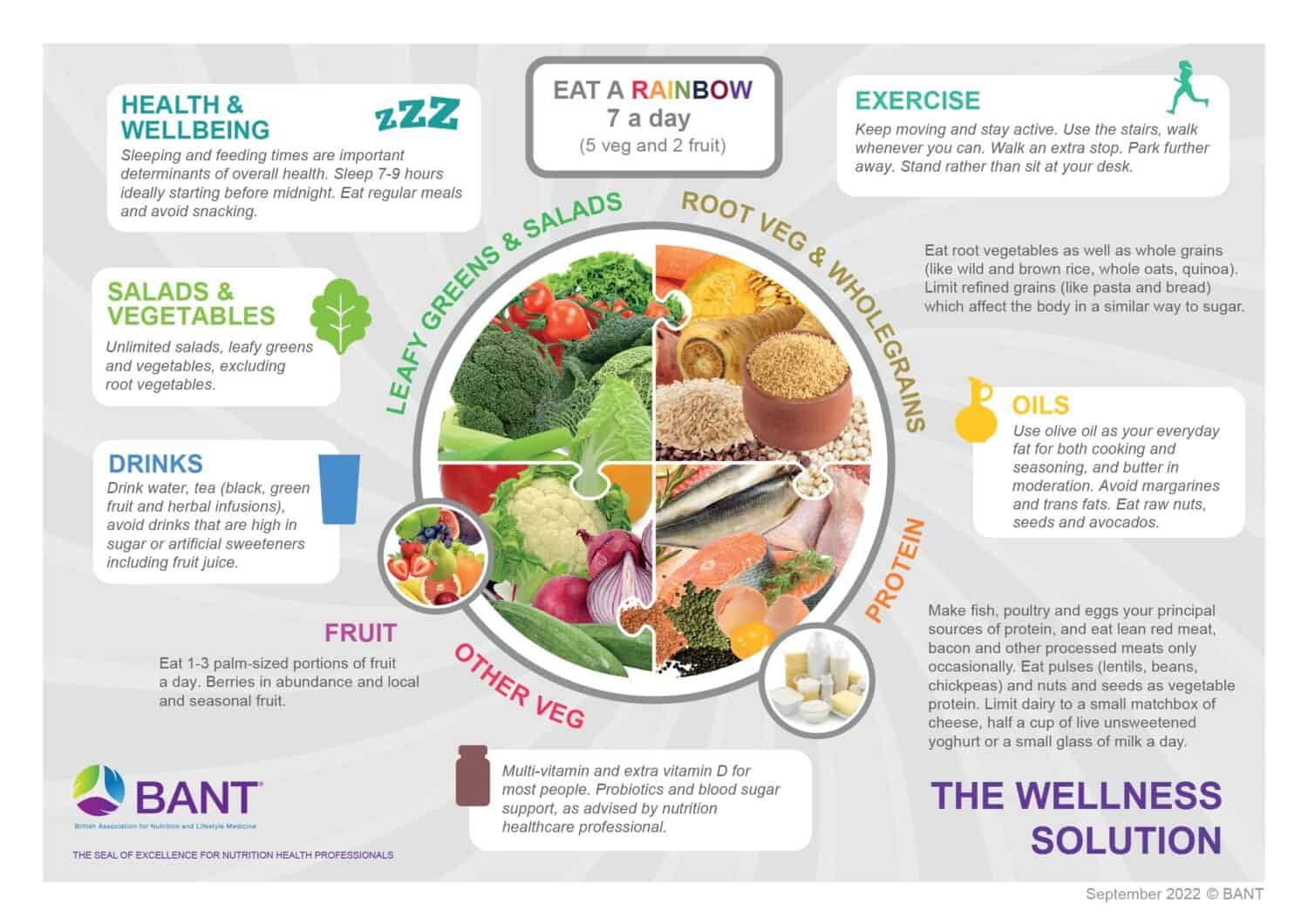Mitochondria in health and disease: Low energy, fatigue, or poor health: it could all be down to how well you are minding your mitochondria!
Energy is the fundamental source by which we live our lives. We need it to wake up, get going and keep functioning throughout the day. In nutrition, it is one of the most frequently mentioned areas of health that individuals state they would like to improve. Let’s face it, energy levels, or lack of, heavily influence how effectively we each navigate our daily lives. Without it, life can be tough. Are you functioning at your best? Given how important energy is, are you aware of what your mitochondria are and the role they play in generating energy?
Energy is defined as the strength and vitality required for everyday and sustained physical or mental activity. Most of us take it for granted thanks to our bodies seemingly limitless supply however, the stress and strains of everyday life can have a major impact on energy levels and fatigue over time. So where does our energy come from? Mostly from the foods and drinks we consume. However, this is just the start of the process as the body must extract the nutrients from these foods and convert them into energy molecules to be used by the body’s organs and biological systems, and this is where your mitochondria come into play.
What are mitochondria?
Mitochondria are organelles inside our cells that generate most of the chemical energy needed to power the cell’s biochemical reactions. In simple terms, they are the battery or powerhouse of our cells. And that’s not all… as well as generating energy from the food we eat, mitochondria are involved in many other key metabolic and immune functions, such as regulating body temperature, gene expression and cell turnover, hence their vital role in health and disease.
Energy, vitality, and healthy aging
Everything in the human body happens for a reason and most biological processes are tightly controlled. The role of the mitochondria is no exception. Their main purpose is to convert chemical energy from food into usable energy for host cells in a process called the citric acid or Krebs cycle (1). To do this, they themselves require energy to function properly. Much like the saying ‘it takes money to make money’ – it takes energy to make energy. This energy is then stored in chemical bonds which can be delivered to areas of high demand such as the brain, muscles, central nervous system, and the eyes. In this way the mitochondria are key to signalling pathways that control longevity and health span as everything works better for longer with the right supply of energy (2,3).
Mitochondria in health and disease
Conversely, anything that impairs healthy mitochondrial function is likely to have a detrimental effect on your health. If energy metabolism is altered, any number of bodily systems or functions may suffer and altered mitochondrial dynamics are seen in many common diseases. If we take the brain as an example – as the organ that has the highest energy demands – over time if the brain does not receive the energy is requires it may contribute to symptoms ranging from migraine to neurological decline and neurodegenerative disorders, such as dementia (4). Depending on your own individual and familial predisposition, mitochondrial dysregulation can impact autoimmune conditions such as myalgic encephalomyelitis (ME) or chronic fatigue syndrome (CFS) (5), cardiovascular disease (6), metabolic syndrome (7) or simply your ability to age healthily. When we consider energy, it is therefore so much more than just the energy needed to get out of bed and perform everyday tasks. Our mitochondria regulate the very energy needed for our heart to pump, our eyes to see and our brain to govern.
Fuelling your Mitochondria
Like any power station, mitochondria need fuel – namely nutrients. Your food choices can influence energy levels for better or for worse depending on the quality of nutrients contained within them.
The best nutrients come from eating a broad and varied range of healthy whole food ingredients such as plenty of colourful fruits and vegetables, quality protein foods, high-fibre wholegrains and healthy fats. In this way, you are sure to get a good selection of all essential vitamins and minerals. More specifically, mitochondrial function and the energy-producing Krebs cycle require omega ω3 fatty acids, antioxidants (vitamin C and zinc), members of the vitamin B family (especially vitamin B12 and folic acid B9), magnesium, selenium, and CoQ10. These nutrients have all be shown to support optimal mitochondrial function (8,9,10) and can be found in a variety of foods such as oily fish, nuts and seeds, leafy greens, citrus fruits, organ meat, legumes, and seafood amongst others.

In recent years there has been a lot of talk about feeding your gut microbiome and the trillions of microorganisms living within. As with all things related to nutrition, the body’s biological systems are all interconnected and so eating a healthy, balanced diet works on multiple levels to support both gut health and mitochondrial health, and thus overall human health and longevity. What is clear however, is that the type and quality of food eaten is important.
As a nation we are eating too many of the wrong foods and this is having a knock-on effect to our individual health. The continual growth and reliance on ultra-processed foods and drinks as dietary staples in the UK is one of the biggest threats to mitochondrial function. Over 50% of UK household food purchases are ultra-processed foods and drinks (UPFDs) compared to just 14% for France and 13% for Italy (11). It is well-documented that these foods are devoid of nutrients and provide little or no nutritional value (12,13,14).
The BANT Food for your Health toolbox provides a range of open-access free resources to help guide your food choices and support you in eating a more healthy and balanced diet. By adding in more nutrient-dense wholefoods you’ll be fuelling your mitochondria with more of the nutrients they need to keep your motor running and your body performing at its best.
By Claire Sambolino MSc, Registered Nutritional Therapy Practitioner rCNHC, BANT Communications Manager.
References:
1. https://bscb.org/learning-resources/softcell-e-learning/mitochondrion-much-more-than-an-energy-converter/#:~:text=Mitochondria%3A%20the%20energy%20converters,and%20it%20happens%20inside%20mitochondria.
2. Amorim JA, Coppotelli G, Rolo AP, Palmeira CM, Ross JM, Sinclair DA. Mitochondrial and metabolic dysfunction in ageing and age-related diseases. Nat Rev Endocrinol. 2022 Apr;18(4):243-258. doi: 10.1038/s41574-021-00626-7. Epub 2022 Feb 10. PMID: 35145250; PMCID: PMC9059418.
3. Akbari M, Kirkwood TBL, Bohr VA. Mitochondria in the signaling pathways that control longevity and health span. Ageing Res Rev. 2019 Sep;54:100940. doi: 10.1016/j.arr.2019.100940. Epub 2019 Aug 12. PMID: 31415807; PMCID: PMC7479635.
4. Trigo D, Avelar C, Fernandes M, Sá J, da Cruz E Silva O. Mitochondria, energy, and metabolism in neuronal health and disease. FEBS Lett. 2022 May;596(9):1095-1110. doi: 10.1002/1873-3468.14298. Epub 2022 Feb 3. PMID: 35088449.
5. Anderson G, Maes M. Mitochondria and immunity in chronic fatigue syndrome. Prog Neuropsychopharmacol Biol Psychiatry. 2020 Dec 20;103:109976. doi: 10.1016/j.pnpbp.2020.109976. Epub 2020 May 26. PMID: 32470498.
6. Chistiakov DA, Shkurat TP, Melnichenko AA, Grechko AV, Orekhov AN. The role of mitochondrial dysfunction in cardiovascular disease: a brief review. Ann Med. 2018 Mar;50(2):121-127. doi: 10.1080/07853890.2017.1417631. Epub 2017 Dec 18. PMID: 29237304.
7. Prasun P. Mitochondrial dysfunction in metabolic syndrome. Biochim Biophys Acta Mol Basis Dis. 2020 Oct 1;1866(10):165838. doi: 10.1016/j.bbadis.2020.165838. Epub 2020 May 16. PMID: 32428560.
8. Fila M, Chojnacki C, Chojnacki J, Blasiak J. Nutrients to Improve Mitochondrial Function to Reduce Brain Energy Deficit and Oxidative Stress in Migraine. Nutrients. 2021 Dec 10;13(12):4433. doi: 10.3390/nu13124433. PMID: 34959985; PMCID: PMC8707228.
9. García-García FJ, Monistrol-Mula A, Cardellach F, Garrabou G. Nutrition, Bioenergetics, and Metabolic Syndrome. Nutrients. 2020 Sep 11;12(9):2785. doi: 10.3390/nu12092785. PMID: 32933003; PMCID: PMC7551996.
10. Wesselink E, Koekkoek WAC, Grefte S, Witkamp RF, van Zanten ARH. Feeding mitochondria: Potential role of nutritional components to improve critical illness convalescence. Clin Nutr. 2019 Jun;38(3):982-995. doi: 10.1016/j.clnu.2018.08.032. Epub 2018 Aug 31. PMID: 30201141.
11. https://www.cambridge.org/core/journals/public-health-nutrition/article/household-availability-of-ultraprocessed-foods-and-obesity-in-nineteen-european-countries/D63EF7095E8EFE72BD825AFC2F331149
12. Rauber F, da Costa Louzada ML, Steele EM, Millett C, Monteiro CA, Levy RB. Ultra-Processed Food Consumption and Chronic Non-Communicable Diseases-Related Dietary Nutrient Profile in the UK (2008⁻2014). Nutrients. 2018 May 9;10(5):587. doi: 10.3390/nu10050587. PMID: 29747447; PMCID: PMC5986467.
13. Filippa Juul, Georgeta Vaidean, Niyati Parekh, Ultra-processed Foods and Cardiovascular Diseases: Potential Mechanisms of Action, Advances in Nutrition, Volume 12, Issue 5, September 2021, Pages 1673–1680, https://doi.org/10.1093/advances/nmab049
14. Nardocci, M., Polsky, J.Y. & Moubarac, JC. Consumption of ultra-processed foods is associated with obesity, diabetes and hypertension in Canadian adults. Can J Public Health 112, 421–429 (2021). https://doi.org/10.17269/s41997-020-00429-9
- Gut microbiome could delay onset of type 1 diabetes - 3rd April 2025
- The da Vinci 5 Robot Is Set To Transform Bariatric Care: - 31st March 2025
- Beyond money: the hidden drivers fuelling child food insecurity - 31st March 2025






